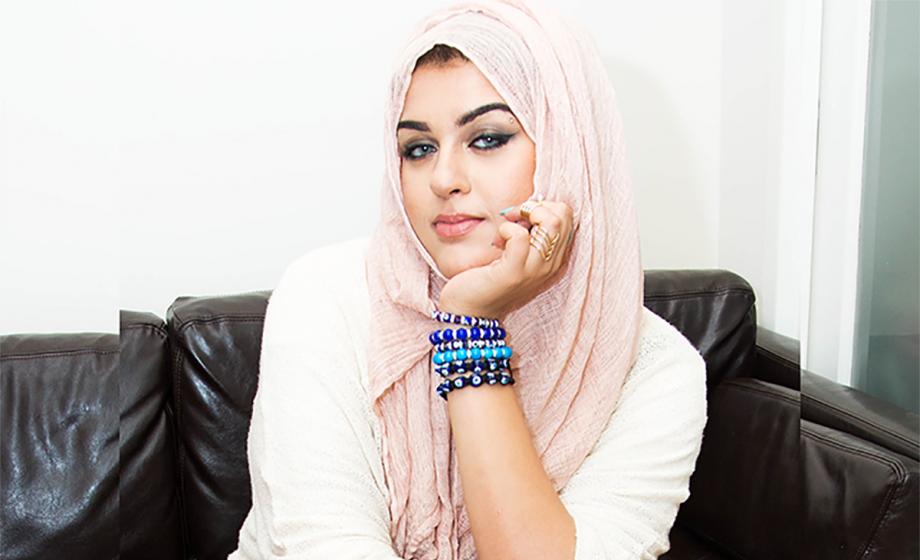Helping Muslim women find their voices

The world can be a noisy place, but what happens when, out of all of those voices in traditional and social media, you can’t find one with which you identify? That was the issue Amani Al-Khatahtbeh faced and set out to resolve with her website MuslimGirl.net. Al-Khatahtbeh, 23, now the CEO and editor-in-chief, founded the site when she was 17. Her goal? Build a site that represented something she could find nowhere else: the perspective and voice of young Muslim women.
During a March 1 talk at Clark in celebration of International Women’s Day, Al-Khatahtbeh asked the audience to Google images of Muslim women and asked them what they saw. Clark doctoral student Hasnaa Mokhtar, who is a contributing writer for MuslimGirl.net, said in this article published on MuslimGirl.net that Al-Khatahtbeh explained she found the photos that showed in the results “portrayed Muslim women as helpless, voiceless individuals with no agency or power.” That’s what motivated her to create the online platform, which has become a forum for serious discussion about the intersection of Islam and Muslim women’s feminist identities.
Since starting the site, Al-Khatahtbeh has been featured on Forbes’ annual 30 Under 30 list of young people transforming media and is a contributing writer for Forbes.com. She’s been recognized by the Malala Fund, spoken at the United Nations and has been featured in the New York Times among other publications and websites.
More importantly, she’s empowered Muslim women to reclaim their narratives. For example, Mokhtar wrote a post for the website about whether all Muslims should have to apologize for the actions of a few extremists after November’s terrorist attacks in Paris, which Clark featured on its homepage after the post went viral. It was the most read article on Clark’s website last year.
